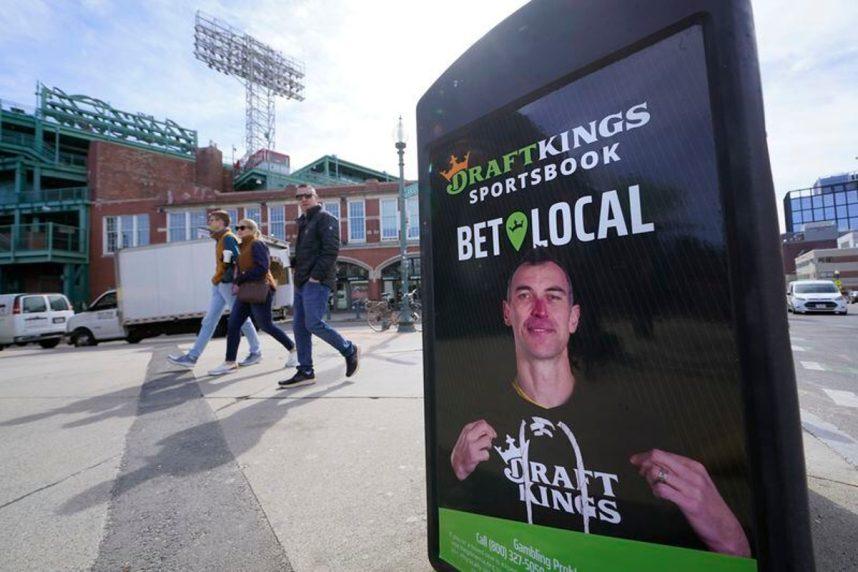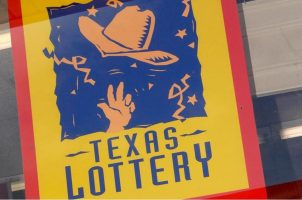DraftKings Targeted in Class Action Lawsuit Alleging Deceptive Marketing
Posted on: December 11, 2023, 06:20h.
Last updated on: December 11, 2023, 12:25h.
Boston-based DraftKings has been named in a proposed class action lawsuit filed in Massachusetts’ Middlesex Superior Court. The action is based on allegations that the sportsbook deceives customers with cleverly designed marketing schemes.

The Public Health Advocacy Institute (PHAI), best known for successfully prosecuting big tobacco, claims in its lawsuit against the sports betting leader that its advertising programs dupe consumers into signing up. The legal claim focuses on a recent signup promotion from DraftKings in Massachusetts that claims to give new bettors a “$1,000 Bonus” upon registering their online wagering account.
The lawsuit claims customers only receive $1,000 in bonus bets after they deposit $5,000 and wager $25K within 90 days. The fine print also requires the bettor to make the $25K in bets on odds of -300 or longer.
The class-action case claims the DraftKings promo was advertised: “Join DraftKings Sportsbook. New Customers Get a $1,000 Deposit Bonus in DK Dollars!” Below the advertising messaging was a “view terms” link.
A new consumer could not reasonably have been expected to understand from the face of DraftKings’ advertisements that the $1,000 bonus would not be provided at the time of their initial deposit, but that instead he or she would earn the bonus only $1 at a time for every $25 wagered. Thus, to receive the bonus, the new customer would have to gamble and risk $25,000 within 90 days,” the lawsuit read.
Legal sports betting began in Massachusetts at the state’s three brick-and-mortar casinos on January 31. Online sportsbooks went live on March 10.
Addiction Litigator
The DraftKings class-action lawsuit was brought in part by famed attorney and Northeastern University law professor Richard Daynard. In the 1980s, Daynard helped uncover evidence that big tobacco knew their products carried considerable cancer risks.
Daynard claims DraftKings is also aware it operates a product prone to addiction and dependence. That’s why he believes the allegedly deceptive marketing techniques must end.
“Gambling products are not typical consumer products. They are addictive,” the PHAI lawsuit alleges. “Marketers of a known addictive product should take special precautions to minimize addiction risk, not require $25,000 of gambling to qualify for a promotional offer to new customers who are likely to be gambling-naive. DraftKings’ promotion is also an unfair business practice for this reason.”
The two-count lawsuit alleges “unfair or deceptive practices” and “untrue and misleading advertising.” The litigation seeks a judgment awarding actual damages, including the $1,000 bonus promised, plus an award of double or treble damages, reasonable costs and attorneys’ fees, and any other further relief.
DraftKings Rejects Claims
Responding to the lawsuit, attorneys representing the sports betting facilitator say the lawsuit is without merit.
As a customer-first organization, DraftKings takes consumer protection and responsible gaming seriously. DraftKings respectfully disagrees with the claims and allegations made by the Public Health Advocacy Institute,” a DraftKings statement read.
DraftKings says it tried to work with the PHAI out of court to resolve the matter.
“Regrettably, the Institute ignored our multiple attempts to engage in an in-person dialogue to carefully examine their concerns and, instead, filed suit. DraftKings intends to vigorously defend this lawsuit,” the company added.
The sports betting industry has faced significant scrutiny regarding its advertising. In Massachusetts, state gaming regulators have banned sportsbooks from advertising signup incentives or any other promotion as “risk-free” or “free.”
Related News Articles
Antigua Sports Betting Ring Head Indicted 13 Years Ago Finally Arrested
Super Group SPAC Facing Shareholder Lawsuit
Most Popular
LOST VEGAS: ‘Tony The Ant’ Spilotro’s Circus Circus Gift Shop
Casinos That Were Never Casinos
Most Commented
-
End of the Line for Las Vegas Monorail
— April 5, 2024 — 90 Comments -
Mega Millions Reportedly Mulling Substantial Ticket Price Increase
— April 16, 2024 — 9 Comments -
Sinclair Broadcast Group Selling 7.91 Million Bally’s Shares
— April 12, 2024 — 5 Comments
















Last Comment ( 1 )
Why would DraftKings insist on an in-person dialogue to resolve PHAI's concerns? Are they unwilling to create a written record of what their attempts to resolve those concerns would entail?